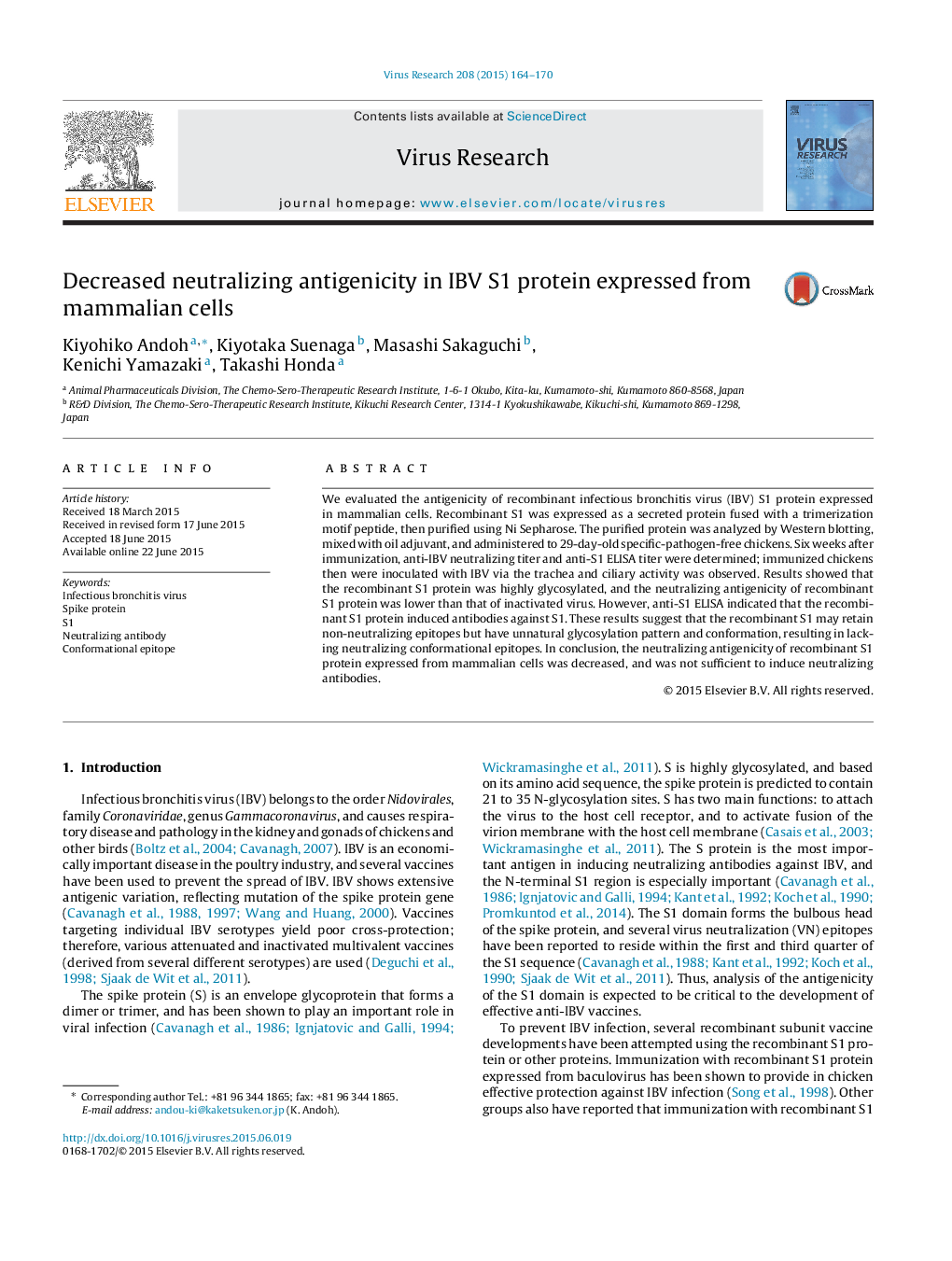| Article ID | Journal | Published Year | Pages | File Type |
|---|---|---|---|---|
| 3428126 | Virus Research | 2015 | 7 Pages |
•The recombinant infectious bronchitis virus (IBV) S1 protein was highly glycosylated and many complex N-glycans were attached on the surface.•The recombinant S1 protein elicited antibodies against IBV S1 protein, but most of the antibodies could not neutralize IBV.•The results indicated that the recombinant S1 may not be able to display neutralizing epitopes by losing native conformation or masking by glycan.
We evaluated the antigenicity of recombinant infectious bronchitis virus (IBV) S1 protein expressed in mammalian cells. Recombinant S1 was expressed as a secreted protein fused with a trimerization motif peptide, then purified using Ni Sepharose. The purified protein was analyzed by Western blotting, mixed with oil adjuvant, and administered to 29-day-old specific-pathogen-free chickens. Six weeks after immunization, anti-IBV neutralizing titer and anti-S1 ELISA titer were determined; immunized chickens then were inoculated with IBV via the trachea and ciliary activity was observed. Results showed that the recombinant S1 protein was highly glycosylated, and the neutralizing antigenicity of recombinant S1 protein was lower than that of inactivated virus. However, anti-S1 ELISA indicated that the recombinant S1 protein induced antibodies against S1. These results suggest that the recombinant S1 may retain non-neutralizing epitopes but have unnatural glycosylation pattern and conformation, resulting in lacking neutralizing conformational epitopes. In conclusion, the neutralizing antigenicity of recombinant S1 protein expressed from mammalian cells was decreased, and was not sufficient to induce neutralizing antibodies.
